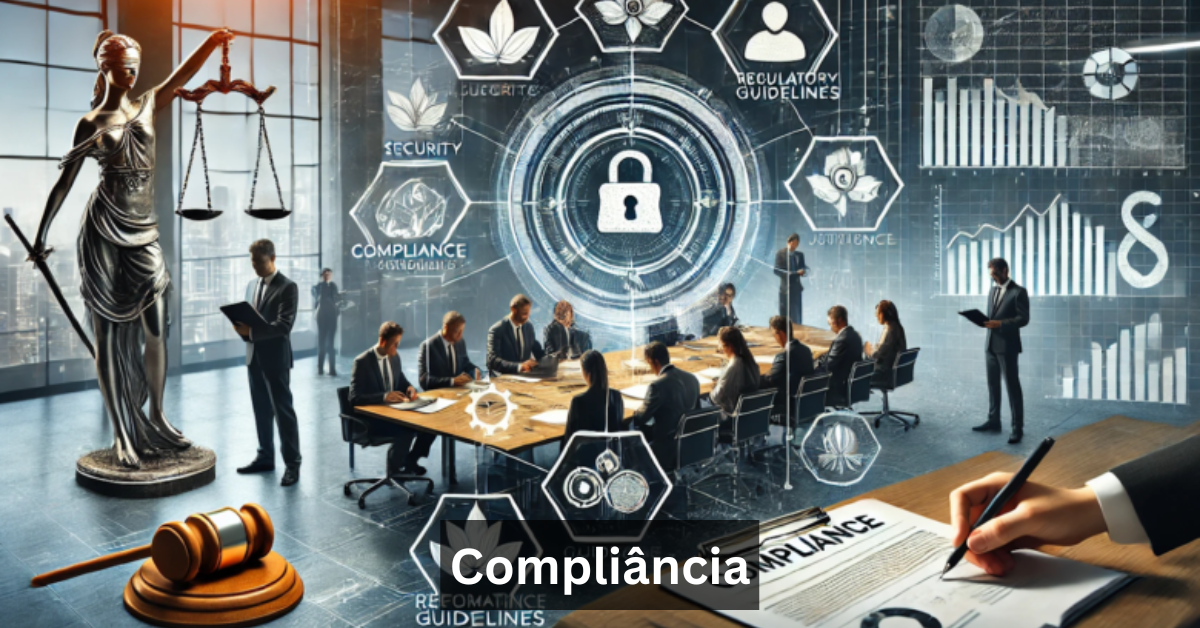In the ever-evolving world of corporate governance and regulatory oversight, the term Compliância has become more than a trend—it is a necessity. Derived from the English word “compliance,” Compliância has been localized and embraced particularly in Portuguese-speaking countries such as Brazil, where it plays a crucial role in legal, ethical, and operational frameworks. Compliância refers to the adherence to laws, rules, standards, and internal policies that govern a company’s operations. It is the embodiment of lawful conduct, ethical integrity, and risk control across every layer of an organization.
Modern organizations are increasingly exposed to regulatory scrutiny, consumer activism, and public accountability. As such, Compliância has expanded beyond traditional legal adherence to encompass corporate ethics, social responsibility, data protection, environmental sustainability, and more. It ensures that companies not only follow the law but also align with broader societal expectations.
The Pillars of Compliância in Business Environments
Legal Compliância
At its core, legal Compliância involves meeting the statutory and legal requirements set forth by governing bodies. In Brazil, for example, companies must adhere to laws like the Lei Anticorrupção (Anti-Corruption Law) and the LGPD (General Data Protection Law). Internationally, laws like the FCPA (Foreign Corrupt Practices Act) and GDPR also influence how companies structure their operations. Failure in legal Compliância can result in penalties, fines, or even dissolution.
Regulatory Compliância
Regulatory Compliância refers to conforming to industry-specific rules and directives. Whether it’s in finance, healthcare, energy, or telecommunications, each sector has its unique regulatory framework. Organizations must implement robust systems that monitor changes in these regulations and ensure internal procedures are always up-to-date. This aspect of Compliância is critical for avoiding sanctions and maintaining licensure.
Ethical and Social Compliância
This form of Compliância transcends laws and addresses a company’s moral responsibilities. Ethical Compliância includes practices like preventing workplace discrimination, ensuring labor rights, rejecting corruption, and enforcing fair trade. Social Compliância, meanwhile, involves aligning with societal values, such as environmental stewardship and community support. Together, they form the ethical backbone of a company’s compliance strategy.
Why Compliância is Crucial in Today’s Business World
Risk Mitigation and Legal Protection
The primary function of Compliância is to prevent risk. Companies that fail to comply with legal and regulatory standards face financial loss, reputational damage, and legal consequences. Implementing a strong Compliância program minimizes these risks by identifying vulnerabilities and responding proactively.
Enhancing Transparency and Corporate Reputation
In today’s digitally connected world, reputation is everything. Consumers and investors are increasingly choosing to support companies that demonstrate ethical leadership. A solid Compliância framework signals that an organization is committed to transparency, fairness, and integrity, which ultimately enhances public perception and stakeholder trust.
Attracting Investment and Business Growth
Investors prefer organizations that manage risk responsibly and follow international compliance standards. By showing a clear commitment to Compliância, companies can gain easier access to funding, form strategic partnerships, and expand into global markets with confidence.
Types of Compliância Every Business Should Know
Internal Compliância
Internal Compliância refers to policies and practices that govern a company’s internal affairs. This includes employee behavior, decision-making protocols, and internal audit controls. Effective internal Compliância fosters a strong corporate culture based on accountability and ethics.
External Compliância
On the other hand, external Compliância involves aligning with laws and regulations imposed by external authorities. This includes tax laws, environmental standards, labor codes, and anti-money laundering policies. Business that invest in external Compliância stay ahead of regulatory updates and avoid sanctions.
Digital and Data Protection Compliância
With increasing cybersecurity threats, digital Compliância has become a major concern. Regulations like LGPD in Brazil and GDPR in Europe require companies to protect customer data and ensure privacy rights are upheld. Failure to comply can lead to severe financial penalties and a loss of customer trust.
Key Components of an Effective Compliância Program
Code of Conduct and Corporate Ethics
A robust Compliância system starts with a well-defined code of conduct. This document outlines expected behavior, values, and principles that employees must adhere to. It serves as the foundation of a company’s ethical framework and reinforces its commitment to lawful conduct.
Compliance Training and Awareness
For Compliância to be effective, employees must understand their responsibilities. Regular training programs ensure that everyone from the top leadership to the frontline staff is aware of legal updates, ethical expectations, and company policies.
Whistleblower Channels and Reporting Systems
A secure and anonymous way for employees to report misconduct is essential. Whistleblower protections are a critical part of Compliância, enabling organizations to detect and correct unethical behavior before it escalates into legal issues.
Internal Audits and Monitoring
Regular audits help assess the effectiveness of Compliância policies and identify areas of improvement. Monitoring tools also ensure real-time visibility into operational risks and breaches.
The Role of the Compliance Officer in Compliância Management
A compliance officer is the guardian of an organization’s ethical and legal standards. They are responsible for developing policies, conducting risk assessments, investigating violations, and ensuring all departments are in sync with the organization’s Compliância strategy. This role requires strong communication, analytical, and leadership skills.
Compliância in Brazil: A Growing Movement
The Rise of Corporate Compliância in Brazil
Brazil has seen a significant rise in Compliância adoption, particularly after the Lava Jato (Car Wash) corruption scandal, which shook the public and private sectors. Since then, companies have increasingly prioritized corporate Compliância to rebuild trust and prevent future misconduct.
Key Regulatory Bodies and Laws in Brazil
Institutions like the CGU (Controladoria-Geral da União), MPF (Ministério Público Federal), and TSE (Tribunal Superior Eleitoral) play a pivotal role in enforcing Compliância laws. Key regulations include:
- Lei da Empresa Limpa (Clean Company Act)
- Lei Geral de Proteção de Dados (LGPD)
Anti-Corruption and Anti-Bribery Laws
These regulations require companies to implement preventive mechanisms, enforce ethical behavior, and promote transparency.
Global Best Practices for Compliância Excellence
International Standards and Certifications
For multinational companies, aligning with international Compliância standards is essential. Certifications like:
- ISO 37001 (Anti-bribery management systems)
- ISO 19600 (Compliance management systems)
- FCPA and UK Bribery Act
serve as benchmarks of ethical and operational integrity across borders.
Digital Transformation and AI in Compliância
Technology is reshaping Compliância. AI-powered tools, machine learning, and real-time data analytics are enabling predictive compliance, automated audits, and intelligent risk management. These innovations improve efficiency and reduce human error.
Challenges in Implementing Compliância
Resistance to Cultural Change
One of the biggest hurdles in Compliância is internal resistance. Employees and managers may view compliance as bureaucratic or unnecessary. Overcoming this requires strong leadership, clear communication, and ongoing training.
Cost and Resource Allocation
Implementing a full-scale Compliância strategy can be resource-intensive. However, the cost of non-compliance—fines, lawsuits, and damaged reputation—is significantly higher.
Keeping Pace with Legal and Regulatory Changes
Laws and regulations evolve constantly. Organizations must stay informed and agile to adapt their Compliância programs accordingly. This includes investing in legal counsel and compliance technologies.
Case Studies: Real-World Impact of Compliância
Petrobras and the Aftermath of Lava Jato
The Petrobras scandal highlighted the lack of effective Compliância measures in major corporations. Following the crisis, Petrobras implemented one of the most comprehensive compliance overhauls in Latin America, restoring public trust and avoiding future scandals.
JBS and Its Global Rebranding Through Compliância
Brazilian meat giant JBS faced significant legal issues related to bribery. Since then, the company has invested heavily in compliance programs, ethics training, and transparency policies to restore investor confidence.
The Future of Compliância: From Risk Control to Value Creation
Integration with ESG (Environmental, Social, Governance)
Compliância is no longer just about risk—it’s about value. Organizations are now integrating ESG frameworks into their compliance strategies to align with investor expectations and sustainable development goals.
Predictive Compliance and Big Data
By harnessing big data, companies can now forecast potential risks and compliance breaches. Predictive tools analyze patterns in real-time, helping organizations stay proactive rather than reactive.
Conclusion
Compliância is not merely a regulatory obligation—it is a business philosophy that drives ethics, trust, transparency, and sustainability. In a world where reputations are made and broken in minutes, companies that prioritize Compliância position themselves as leaders in integrity and innovation.
From legal risk mitigation to cultural transformation, the benefits of a well-implemented Compliância program are far-reaching. Organizations that invest in it today are the ones that will not only survive but thrive in the economy of tomorrow.
Frequently Asked Questions
Why is Compliância important for businesses?
Compliância helps businesses avoid legal penalties, improve their reputation, attract investors, and build trust with customers and stakeholders.
What are the key elements of Compliância?
Key elements of Compliância include legal compliance, ethical conduct, internal audits, employee training, and whistleblower protection systems.
How does Compliância work in Brazil?
In Brazil, Compliância is guided by laws like the LGPD and Lei Anticorrupção, and enforced by agencies such as the CGU and Ministério Público.
Who is responsible for Compliância in a company?
A compliance officer or team is typically responsible for managing and enforcing Compliância practices within an organization.
Stay in touch to get more updates & alerts on Erome! Thank you



